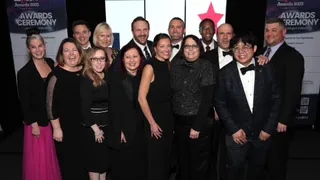
Five minutes with… Jacqueline Mulryne
Amid the unprecedented challenges presented by COVID-19, questions around the use of second medical use (SMU) patents have become increasingly pertinent. On Tuesday December 1, LSPN Connect ’s session: Addressing Second Medical Use Infringement: An Evaluation of Recent SMU Cases will examine a number of key issues relating to this pivotal area of life sciences IP.
Already registered?
Login to your account
If you don't have a login or your access has expired, you will need to purchase a subscription to gain access to this article, including all our online content.
For more information on individual annual subscriptions for full paid access and corporate subscription options please contact us.
To request a FREE 2-week trial subscription, please signup.
NOTE - this can take up to 48hrs to be approved.
For multi-user price options, or to check if your company has an existing subscription that we can add you to for FREE, please email Adrian Tapping at atapping@newtonmedia.co.uk

